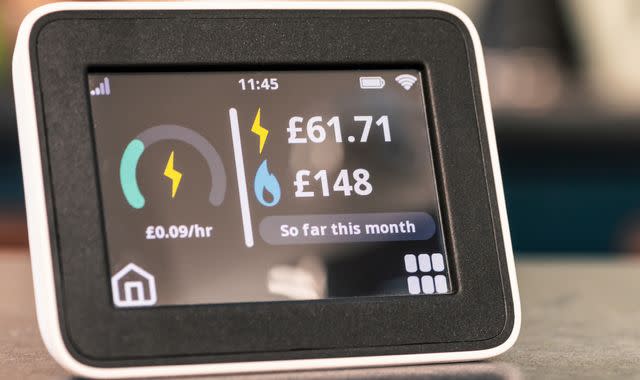What is the Demand Flexibility Service and how can I save £100 off my energy bill if I sign up?

People are being asked to cut down their energy usage this evening to help take pressure off national supplies during the current cold snap.
The National Grid's 'Demand Flexibility Service' was launched last winter - but is running again this year amid a cold snap forecast across the UK.
It offers people with smart meters the chance to lower their energy usage at certain times in exchange for cash or money off their bills.
Read more: Yellow warnings extended and health alerts in place - UK weather latest
This then helps avoid the need for emergency generators to be used or blackouts to be enforced when the grid comes under pressure during peak times this winter.
It was first trialled by Octopus Energy in November 2022, but now more than 25 suppliers are running the scheme with their customers.
What is it and why is it happening?
The National Grid's Electricity System Operator (ESO) announced the Demand Flexibility Service in 2022 following a successful pilot with 100,000 Octopus customers.
With global energy shortages due to spiralling prices and reduced supply from Vladimir Putin's Russia, the grid could be unable to cope with the increased demand of people trying to keep their homes warm this winter.
At peak times during the colder weather, there could be so much demand that emergency generators have to be used - which are both expensive and bad for the environment.
The grid has also warned three-hour strategic blackouts could be scheduled to help manage supply, but these haven't been needed yet.
The DFS hopes to take pressure off the grid by reducing energy consumption before that happens.
How does it work?
You can only take part in the scheme if you have a smart meter and your energy supplier is signed up.
This is because the grid needs to monitor your energy every 30 minutes, which is only possible with a smart meter.
On a number of days between November and March your energy company will ask you to reduce your usage - usually between 4pm and 7pm.
Customers are notified the day before so they can opt in or out depending on whether it suits their schedule.
This time the 'energy-saving session' is a 'live event', which means it is in addition to the days already earmarked as part of the scheme as a 'top-up' for the grid.
It will last between 5pm and 6.30pm.
The sessions require you to reduce your normal energy consumption by around 30%.
The easiest way to do this is by not using energy-intensive appliances such as cookers, washing machines and dishwashers.
Light bulbs and TVs use very little energy - so there's no need to turn the lights off or abstain from watching your programme during that time.
The grid then compares your energy usage in 30-minute increments with your normal levels - and your supplier will give you around £3 for every unit (kilowatt-hour) you save.
This could total up to £100 over the five-month period which will be automatically deducted from your bill.
What if I don't reduce my energy enough?
If you sign up and either can't take part or don't reduce your usage enough during the session, you will just get less money off your bill.
Which suppliers are taking part - and will it be rolled out wider in the future?
Octopus launched its pilot scheme on 1 November with 400,000 people taking part.
British Gas began its DFS on 1 December with around 100,000 customers.
Eon, OVO energy, Shell and Engie are among the suppliers now signed up.
If you haven't already been contacted by your supplier, you can get in touch with them to show an interest if you're eligible.
Read more:
Are you eligible for government insulation scheme?
Buyers struggling to afford homes despite house prices dropping
The ESO says similar schemes are "likely to become a major feature of the market in years to come".
A spokesperson said this week: "Our forecasts show electricity supply margins are expected to be tighter than normal on Wednesday evening.
"It does not mean electricity supplies are at risk and people should not be worried. These are precautionary measures to maintain the buffer of spare capacity we need."


